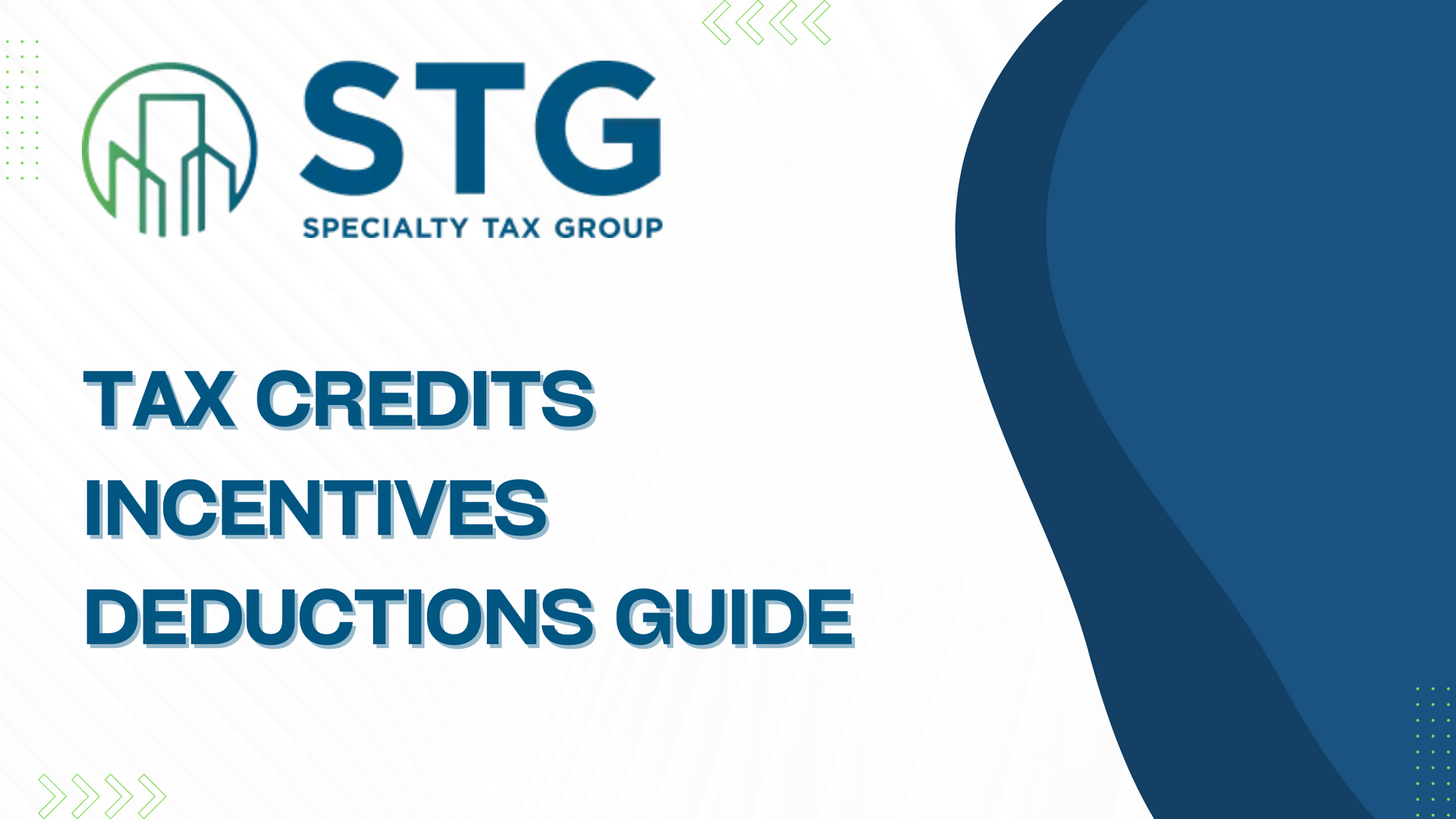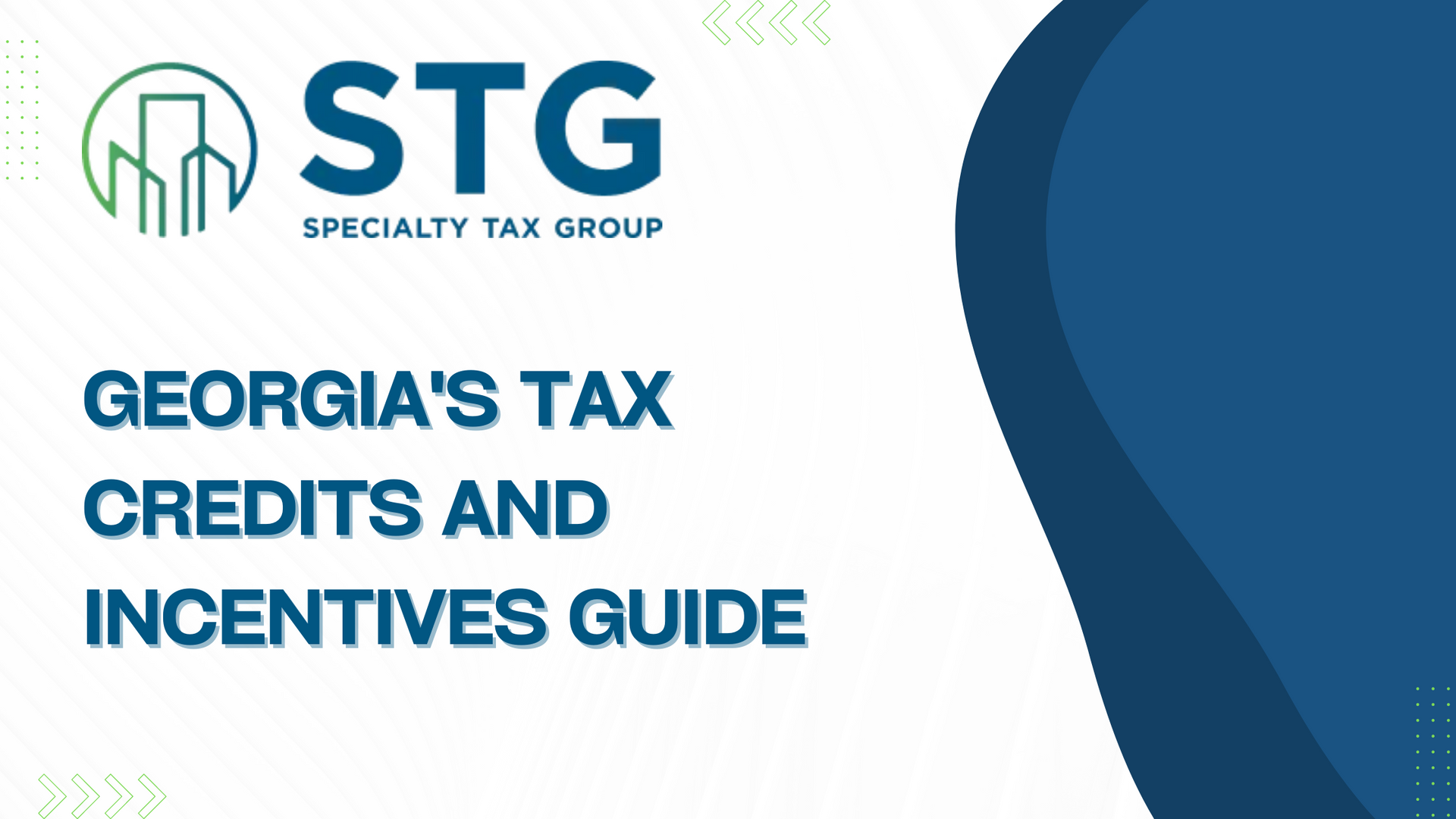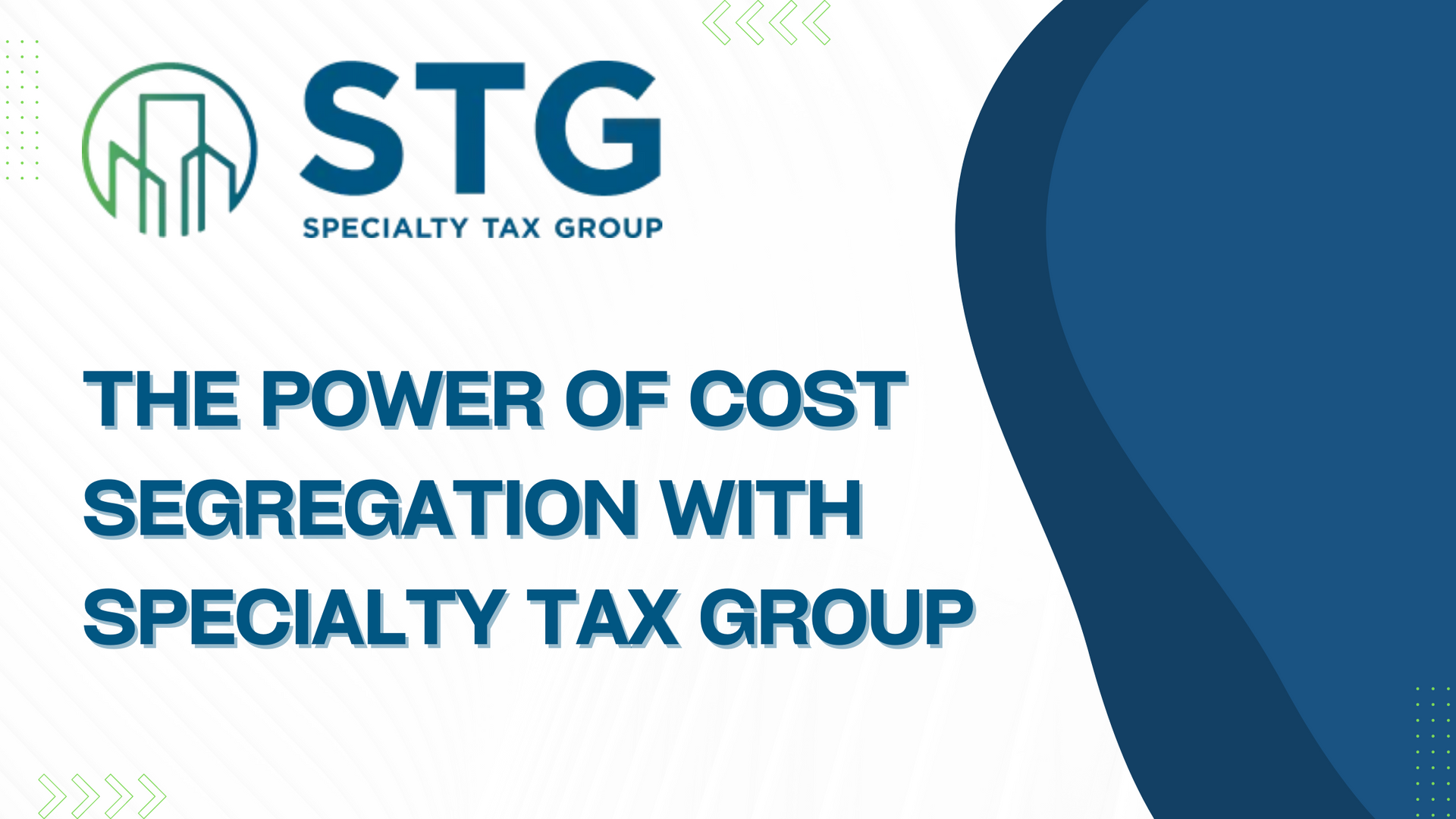Specialty Tax Group
Our Services
Cost Segregation
Services
Cost Segregation is a valuable strategy to increase cash flow and reduce income taxes for commercial property owners.
Research & Development Tax Credit
A permeate tax incentive that incentivizes US-based taxpayers for increasing investment in research activities.
Green Energy Incentives
Here we look for 45L and 179D tax credits relating to developers, owners, architects, contractors and designers of energy efficient homes and buildings.
Georgia Tax Credits
The retraining tax credit allows Georgia businesses to offset their investment in their employees, reduce their Georgia income tax liability, and increase cash flow.
Tennessee Tax Credits
Taxpayers that meet the requirements of a qualified business enterprise, make the required capital investment of at least $500,000 within three years (five years in a tier 3 or 4 enhancement county), and create a minimum number of qualified jobs from the investment may receive a job tax credit equal to $4,500 for each qualified job.
Comprehensive Fixed Asset Reviews
A Comprehensive Fixed Asset Review reviews a taxpayer’s entire depreciation schedule to ensure the treatment of all assets.
Tangible Property & Repair Reviews
For our most capital intensive clients where we deep dive into the entire depreciation’s schedule.
Accounting Methods
A change in accounting method includes any change in the taxpayer’s overall method of accounting, which often times results in improved cash flow.
Clean Energy (CE) Investment Tax Credits (ITC)
The Inflation Reduction Act (IRA) renewed and improved the Federal Investment Tax Credit for Clean Energy Property. Taxpayers can get a credit of 6%-50% on investments.
Learn More
What We Do
We focus on Cost Segregation Studies, Energy Efficiency Incentives (179D/45L), Comprehensive Fixed Asset Reviews, Research & Development Tax Credits, State Credits, Like-Kind Exchanges (1031), and Accounting Methods. With the knowledge of CPAs, engineers and architects, attorneys, HERS raters, and LEED Accredited Professionals, STG provides fully-developed and complete solutions tailored for each client.
Cost Segregation is a valuable strategy to increase cash flow and reduce income taxes for commercial property owners. The tax benefits of cost segregation can be applied to various types of real estate: apartments, assisted living/nursing homes, auto dealerships, office buildings, restaurants, manufacturing, hotels, medical buildings, retail space and others. The process of Cost Segregation segregating 1245 personal property components 1250 land improvements from the real property of a building, resulting in depreciable lives of 5, 7 and 15 years using accelerated depreciation.
Beyond accelerated deductions the Tangible Property Regulations (TPR) allow taxpayers to write off disposed building components as a a partial disposition. A cost segregation carves out building components so that a taxpayer can easily identify the deductible cost after a renovation.
Types of transactions:
- New Construction
- Property Acquisition
- Renovations or Expansion
- Leasehold Improvements
- Real Property Step-Up
Learn More
Frequently Asked Questions
-
Can I use passive losses against active income?
Under Sec. 469, the deduction of losses from a passive activity is limited to the amount of passive income from all passive activities. A passive activity is any trade or business in which the taxpayer does not “materially participate”. However Regs. Sec. 1.469-4(c)(1) provides for a grouping of legal entities if their activities constitute an appropriate economic unit for the measurement of gain or loss. There is a facts-and-circumstances test for determining whether a grouping of activities results in an appropriate economic unit. The election to group activities is made by filing a statement with the taxpayer's original income tax return for the taxable year. Real Estate owners often use the “Grouping Election” to offset passive loses against active income. Before making this election, you should consult with your tax advisor.
-
Who can use cost segregation?
- CPAs CAN RECOMMEND USING THE cost segregation technique when a taxpayer constructs a building or buys an existing one. ...
- BUYERS OF REAL ESTATE SHOULD OBTAIN an engineering report that segregates assets into four categories: personal property, land improvements, building components and land.
-
What is cost segregation in cost accounting?
Simply put, cost segregation is the process of identifying various assets and the costs of those assets individually, and then properly classifying them for the purposes of federal tax deductions. Specifically, cost segregation is utilized for the reallocation or reclassification of real property assets.
Ready For A Conversation?
Contact us today and our friendly team will reach out as soon as possible.
Our Recent Posts
Read Our Blogs
All Rights Reserved | Specialty Tax Group | Powered by Automationlinks | Privacy Policy















